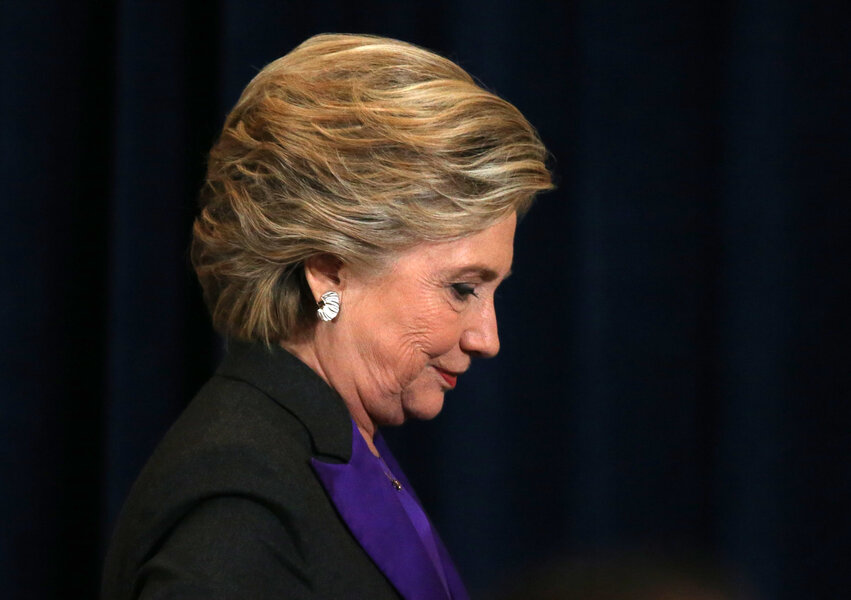Opinion: The election's hard cybersecurity lesson
Loading...
Even though Donald Trump emerged as president-elect after a grinding election, history may ultimately judge meddling foreign hackers as the real winners.
The campaign saw an unprecedented number of high-profile cyberattacks, which led to seemingly daily revelations about party infighting gleaned from emails stolen from Democratic political groups.
Thanks to hackers, and the fact that organizations such as WikiLeaks published their spoils, we heard about aggravated Hillary Clinton supporters, improper "sneak peaks" of debate questions, and the Democratic National Committee's apparent support of Mrs. Clinton over her Democratic rival Bernie Sanders – revelations that led to several DNC resignations.
As historians begin looking at how Mr. Trump landed the Oval Office, they'll have to acknowledge email breaches at the Clinton campaign, the Democratic National Committee, and myriad advisers as damaging Hillary Clinton's campaign. She was the one candidate constantly thrown into damage-control mode by embarrassing emails, often derailing both her message and momentum – the most important factors in politics.
And while many people – politicians, pollsters, and the public – will look for lessons in this historic presidential election, one of the biggest takeaways is everyone needs to do a better job when it comes to protecting their data.
Of course, Mrs. Clinton wasn't the only victim of the email dumps. When the website DCleaks published former Secretary of State Colin Powell's hacked personal emails in September, they exposed 14 potential acquisition targets of Salesforce.com. Mr. Powell sits on the board of directors for Salesforce, the customer relations software company.
In this instance, the fortunes of corporate America emerged as collateral damage in the no-holds-barred election battlefield. The Powell leak reveals how these kinds of breaches are more than just embarrassing; they can also cause real financial damage.
While some of the victims of the recent hacks may not be that technically savvy, even those of us who consider ourselves techies can lose sight of our digital footprints. With email and file storage nearly infinite now, and our smartphones syncing our contacts, photos, and documents seamlessly, sensitive data can accumulate in our inboxes and storage services over time. And that's a volatile situation if you don't have strong passwords, don't use two-factor authentication, and don't use encryption.
We should all routinely change passwords and use ones that are stronger, longer, and more complex, as opposed to ones that are easy to guess or hack. Taking these few extras steps now can help avoid arduous damage control down the road.
It's also important not to mingle personal data with your most sensitive work or financial information. If you can, use one device for personal matters and another for business. If you happen to serve in senior roles for your organization, explore whether they can provide you with a dedicated device to boost their security – and yours.
And remember that email does not come with guarantee of the right to privacy. In this day and age, any type of content from any device can be hacked. If you won't be comfortable seeing your email on the front of a newspaper, don't write it.
Whether you're a chief executive officer, politician, celebrity, or just a regular Joe or Jane, your information, career, and reputation could be at stake if you're the victim of a data breach. If anything, the hacking that took place during the presidential campaign is a massive teachable moment for stopping poor personal security practices.
Yong-Gon Chon is chief executive officer of Cyber Risk Management. Follow him on Twitter at @YongGonChon.









